
May 21, 2025
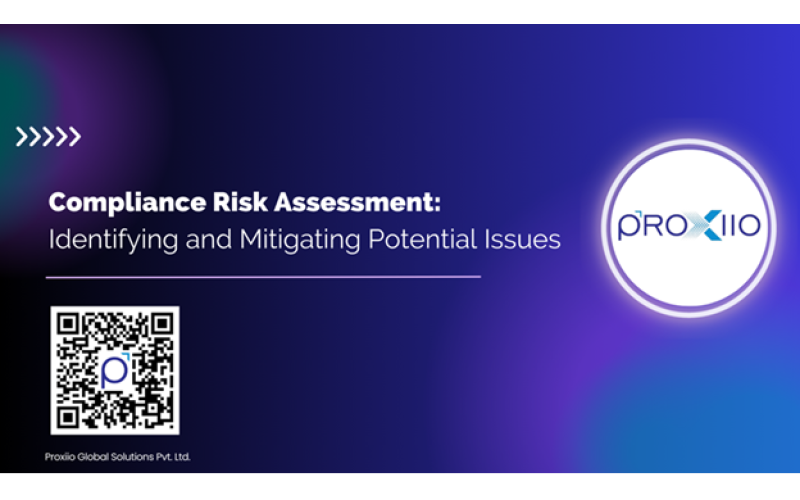
In
today’s rapidly evolving regulatory environment, compliance is no longer a
static checklist—it’s a dynamic, ongoing process. A compliance risk assessment
serves as a cornerstone for building a strong compliance program, helping
organizations proactively identify, evaluate, and mitigate legal and regulatory
risks before they escalate into significant issues. With the integration of AI
and legal analytics, this process has become even more efficient, predictive,
and impactful.
A
compliance risk assessment is the systematic process of identifying, analyzing,
and evaluating risks that could hinder an organization from complying with
laws, regulations, policies, or ethical standards. It involves understanding
both the internal operations and the external regulatory landscape.
Traditionally
a manual process, compliance risk assessments are now increasingly augmented by
AI-powered analytics, enabling faster detection of anomalies, better predictive
insights, and more accurate risk prioritization.
Adoption
of AI in Legal Operations
Source
Begin
by identifying the laws and regulations that apply to your industry and
geographic location. These may include:
●
Data protection laws (e.g., GDPR, CCPA)
●
Industry-specific regulations (e.g., HIPAA, FCPA)
●
Employment, environmental, and financial compliance laws
➡️ How
AI helps: AI-powered tools scan and interpret evolving legal databases in real
time, ensuring organizations remain up to date with regulatory changes.
Conduct
interviews, surveys, and document reviews across departments (legal, HR,
finance, IT) to uncover areas of potential non-compliance.
➡️ How
analytics helps: Centralized dashboards and compliance analytics can highlight
patterns, such as recurring audit issues or high-risk departments, allowing for
more targeted risk mitigation.
For
each identified risk, assess the probability of occurrence and the potential
impact. Prioritize risks accordingly.
➡️
Insight: According to a recent legal tech report, 62% of legal professionals
believe AI enhances their ability to assess risk impact with greater accuracy.
Evaluate
whether current policies, processes, and controls are sufficient to mitigate
the identified risks.
➡️ AI
integration: AI-driven compliance monitoring can automatically test controls
for compliance anomalies, reducing reliance on manual testing.
For
high-priority risks, create detailed mitigation plans including training
programs, policy changes, and control enhancements.
➡️
Data-driven strategy: Companies using AI in compliance management report a 45%
reduction in policy violations, as AI-driven systems automatically enforce and
monitor compliance activities.
AI
Benefits in Compliance Programs
Source
Regular
monitoring is key to ensuring risk mitigation strategies remain effective. Risk
environments evolve, and your compliance framework must evolve with them.
➡️
Automation in action: AI-powered compliance platforms enable real-time alerts,
predictive modeling, and trend analysis—transforming monitoring from a reactive
to a proactive function.
The
use of AI and analytics in legal and compliance operations is no longer
optional—it’s a competitive necessity. Key industry statistics highlight this
shift:
● 57% of U.S. law firms use AI for
document review and e-discovery.
●
AI reduces contract review times by up to 80%, accelerating compliance
workflows.
● 63% of legal departments report
increased efficiency and accuracy when AI is used in risk assessments.
●
The legal analytics market is projected to grow by 35% annually over the
next five years.
Projected
Growth of Legal Analytics Market (2025–2030)
Source
At
Proxiio, we empower legal teams with technology-enabled, end-to-end compliance
solutions. Our services include:
●
Comprehensive compliance risk assessments
●
Customized mitigation plans
● AI-integrated compliance platforms for
monitoring and alerts
●
Regulatory change management and ongoing advisory
Our
goal is to help you build a resilient, scalable, and forward-looking compliance
framework.
A
thorough compliance risk assessment is more than just a regulatory
requirement—it’s a strategic advantage. By leveraging AI and analytics,
organizations can go beyond mere compliance to build smarter, faster, and more
robust compliance programs. With Proxiio’s expertise and technology-driven
approach, staying compliant has never been easier.
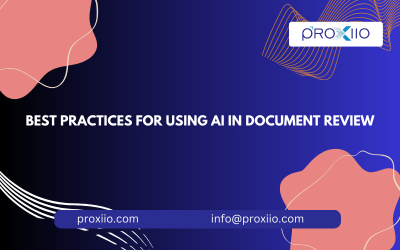
March 04, 2025
IntroductionArtificial Intelligence (AI) is revolutionizing the legal industry, particularly in document review. Byleveraging machine learning, natural language processing (NLP), and optical character recognition(OCR), AI tools streamline the analysis, sorting, and extraction of information in legal documents.These innovations not only save ...
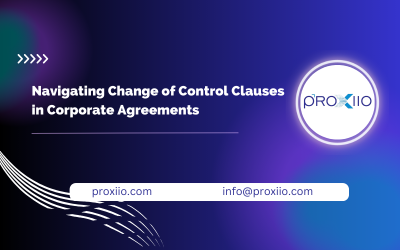
March 05, 2025
Navigating Change of Control Clauses in Corporate AgreementsIn corporate transactions, one of the most critical yet often overlooked aspects of an agreement is the Change of Control (“COC”) clause. This provision governs what happens when there is a significant shift ...
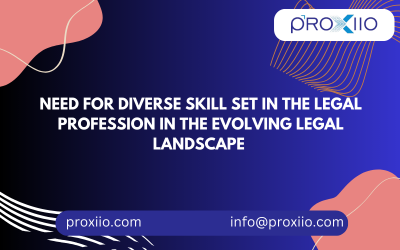
August 26, 2024
In the evolving legal landscape, the need for a diverse skill set among legal professionals has become increasingly crucial. While strong legal expertise remains fundamental, today's legal environment demands much more than this from the practitioners. Here is an overview of ...
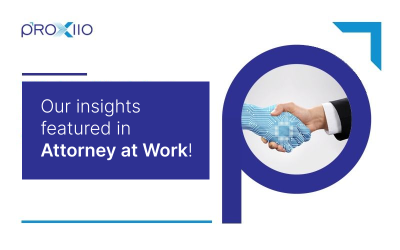
June 20, 2024
An insightful article titled "How LLMs and Generative AI Can Transform Legal Services," by Nasir Ali from our Litigation and Investigations team has been published in the leading legal technology publication Attorney at Work.The article delves into the transformative potential ...
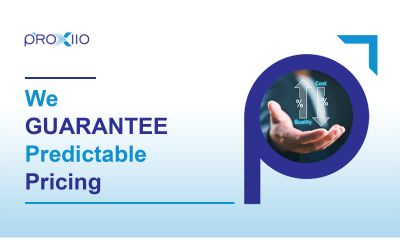
April 05, 2024
“Predictable pricing” is a phrase heard often when it comes to alternative legal solutions providers. In fact, it is used so often and without any merit that it has become meaningless to clients of outsourced legal solutions companies. We hear ...
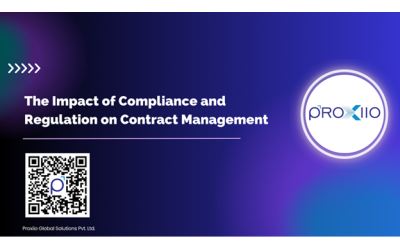
May 21, 2025
In an era defined by increasingly complex regulatory frameworks and heightened scrutiny, Contract Management has evolved from a back-office administrative task into a critical risk management function. For modern enterprises—particularly in highly regulated industries—maintaining compliance throughout the contract lifecycle isn’t ...